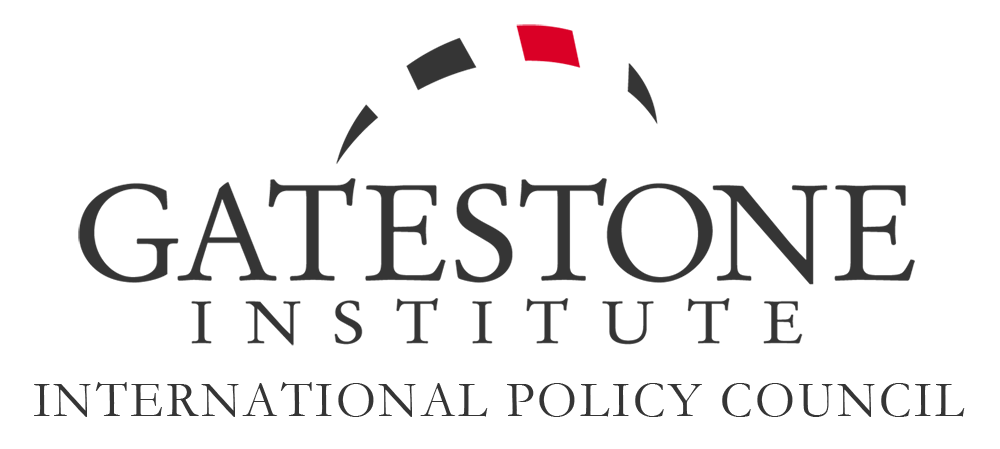

Germany: Asylum for Cash Scandal
by Soeren Kern
May 22, 2018 at 5:00 am
https://www.gatestoneinstitute.org/12344/germany-asylum-scandal
|
Share 127 |
Germany’s Federal Office for Refugees and Migration (Bundesamt für Migration und Flüchtlinge, BAMF) will review more than 25,000 asylum decisions after allegations of corruption at its regional office in the northern city of Bremen.
Interior Minister Horst Seehofer announced the audit after it emerged that a former official at BAMF’s Bremen branch allegedly accepted cash bribes in exchange for granting asylum to at least 1,200 refugees who did not meet the necessary criteria. Five others, including three lawyers, an interpreter and an intermediary, are also being investigated.
|
Pictured: City Hall in the Old Town of Bremen, Germany. (Image source: Jürgen Howaldt/Wikimedia Commons) |
The three lawyers allegedly received cash payments from “refugees” across Germany and submitted their asylum applications to the Bremen office. The interpreter then “interpreted” asylum interviews in such a way that the answers supposedly given by refugees matched the requirements for successful asylum applications. He reportedly received €500 ($680) per asylum seeker.
In one instance, BAMF’s Bremen office approved the asylum application of Mohamad A., who, through a corrupt interpreter, claimed to be a Syrian refugee and whose sister was shot dead by forces loyal to Syrian President Bashar al-Assad. Two years later it emerged that Mohamad A. lied: His name is actually Milad H. — and he comes from Romania.
Some of those granted asylum were considered by German authorities to be potential security risks, according to the news magazine Der Spiegel. They include Syrian intelligence operatives, human smugglers and other hard-core criminals — as well as potential Islamic State jihadists.
BAMF Director Jutta Cordt said that a team of 70 in-house auditors will reevaluate 18,000 asylum decisions issued since 2000 by its Bremen branch. In addition, BAMF will reexamine another 8,500 decisions made in 2017 by ten other regional offices, according to Die Welt. The branches are under scrutiny because of noticeable differences in the number of asylum applications approved or denied, compared to other offices.
Internal BAMF emails leaked to Süddeutsche Zeitung showed that Cordt and other senior BAMF officials had received information about “suspicious cases” at the Bremen office as early as February 2017, but that the information was kept under wraps until after the German elections in September 2017. It was not until October 26, 2017 — one month after the federal elections — that BAMF quietly launched an internal audit. Immigration policy was a key issue in the election, in which the anti-immigration party Alternative for Germany (AfD) became the third-largest party in the Bundestag, the German federal parliament.
The scandal did not became public knowledge until April 20, 2018, when Bremen’s prosecution service announced that a former official at BAMF’s Bremen branch was under investigation, along with several others, and that police had raided the homes and offices of the suspects.
Also in April, BAMF fired more than 2,000 freelance interpreters because they “did not appear to be neutral or were untrustworthy.” In some instances, interpreters who were suspected of being spies for the Turkish government were terminated for “violating their duty of neutrality.”
At present, some 5,800 freelance interpreters — many of whom are migrants themselves and are not proficient in German — are working for BAMF in 472 languages, according to Westdeutsche Allgemeine Zeitung. Most were hired, without being vetted, during the height of the migration crisis in 2015, when Chancellor Angela Merkel allowed into the country more than a million migrants from Africa, Asia and the Middle East. Only 620 of the 5,800 interpreters are certified, according to Westdeutsche Allgemeine Zeitung.
The asylum scandal has significantly damaged public confidence in BAMF. A Civey survey published by Die Welt on May 21 found that 79.7% of Germans stated that they had “fairly little” or “very little” confidence in BAMF’s asylum decisions. Only 8.9% said that their level of confidence in BAMF was “very large” or “rather large.”
The lack of trust in BAMF was shared by voters from all political parties: 97.9% of those who support the anti-immigration party Alternative for Germany (AfD) said they mistrust BAMF, followed by the Free Democrats (87.1%), Chancellor Angela Merkel’s conservative CDU/CSU bloc (80.8%); the Left (66.5%), the SPD (64.5%) and the Greens (62.4%).
Meanwhile, nine out of ten rejected asylum applications end up in court, according to Süddeutsche Zeitung. In more than 40% of the cases, judges have ruled in favor of the migrants and overturned BAMF’s negative asylum decisions. Judges have sided with migrants from Syria in 99.9% of the cases, Afghans in 47% and Turks in 34% of the cases. Migrants filed 328,000 lawsuits in 2017 — twice as many as in 2016 — to overturn BAMF’s negative asylum decisions. At the end of 2017, there were 372,000 pending cases in German courts.
BAMF currently rejects almost all asylum requests from converts from Islam to Christianity, according to Thomas Schirrmacher, president of the International Society for Human Rights. He said that when undergoing “belief tests,” BAMF often relies on Muslim translators who deliberately mistranslate at the expense of Christians or converts. He cited an example of a convert who, when talking about Martin Luther and the Gospel of Matthew, the Muslim interpreter referred to Lothar Matthäus, a well-known German footballer.
“It is a scandal that almost all converts from Islam to Christianity are being denied asylum,” Schirrmacher said. “How do BAMF decision makers hope to answer the highly complicated and sensitive question of whether conversion to Christianity is fabricated or not by using bad and partisan translators?”
Soeren Kern is a Senior Fellow at the New York-based Gatestone Institute.
© 2018 Gatestone Institute. All rights reserved. The articles printed here do not necessarily reflect the views of the Editors or of Gatestone Institute. No part of the Gatestone website or any of its contents may be reproduced, copied or modified, without the prior written consent of Gatestone Institute.

You must be logged in to post a comment.